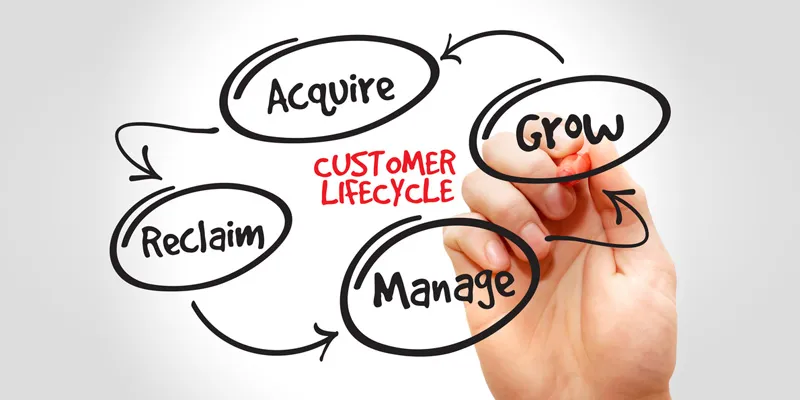When will CRM become important for Indian companies?
This is the first time in the history of industry that the spending on customer relationship management tools is going to outdo enterprise resource planning tools. Analysts say that the spending on CRM will be $36.5 billion next year, $1.5 billion more than ERP. One would wonder why the sails of CRM took so long to capture glory. One would also wonder why corporations have taken so long to make this happen. In the digital world traditional CRM does not cut it, and that’s the reason why over the last five years CRM has clearly sailed with wind. For the first time, corporate houses feel insights can increase their sales in the long run. Let me bring it crashing down, this is just a phenomenon in the West. Just when you thought consumer suffering had ended, Indian consumers will continue to suffer because corporate and government alike have ignored CRM services. No wonder Indian services are the worst the world over.
Indian automobile, telco and banking services are yet to understand the power of the data that they have mustered over the last decade. These companies are so sales driven that they almost forget the events after the sale. They think a post sales call makes the cut in the digital era.
Even government services do not invest in CRM and therefore they have no way of telling whether the quality of life for a citizen has gone up. They love citizen apathy and in this digital age consumers still suffer from the lack of data when it comes to government services. Our CRM is in the hands of politicians and companies that worry about the next election or the next sale.
According to the United Nations, India ranks 118 in the happiness index. Although the happiness index has other indicators such as social capital and freedom of life, it also indicates that Indians suffer quietly as all services do not match up to improve the quality of life of its people. Here is how some of them are implementing CRM to understand customers.
"The Aadhaar database was created to make public service easier and accountable. It was created to change the fortunes of Indians," says Nandan Nilekani, Co-founder and former CEO of Infosys.

Retailers and CRM
A decade ago, Shoppers Stop ruled the roost in CRM because they understood their customer through their loyalty programme. The programme boasts of a large data set of more than 4.3 million customers and is even used today. Seventy-five percent of its revenues come from the loyalty programme. But now the retailer is trying to understand how the consumer behaves - in the digital world - and use its already large database to revamp its product assortment. Similar moves have been made by the Future Group and Reliance Retail. They are using CRM to even understand store metrics and the propensity of shopping by region. By doing so they are not just able to rationalise stock, but are also able to manage their real estate costs very well. The data has enabled them to focus their offers that are right for the customer. Indian retailers are going to be the first ones who are going to spend close to a $1 billion in CRM over the next eight years. But the same cannot be said about other industries below. "Customer data has always been an object of research for us. We do not just use it to understand our sales, but also behaviour patterns," says Kishore Biyani, Chairman of Future Group.
Financial companies, automobile dealers, and telcos make customer second
Indian financial organisations, telcos and automobile dealerships perhaps have the worst CRM practices. Since their businesses are focussed on sales, customer service is a distant second. There are sales calls on a daily basis about loan and credit card offers. Sometimes the phone calls from telemarketers are so dreary that the offers are nothing short of dull. Most calls end up with sales people pleading and are suffering with self-pity. When was the last time that one really had an engaging conversation because the offer made mattered to you? The answer would be a unanimous, never! While CRM is out beating ERP tools, there is no investment in understanding the customer. A similar conundrum exists with telcos because customer queries take forever.
Although there is so much data - of customers - which banks and telcos have collected over the last decade since digitisation, they have been postponing the uses of CRM for a lifetime now. The time – in using an intelligent system – has arrived. But it will be some time before the benefits of a CRM reach the consumer. Until then, the harrowing of the voice over the phone and unnecessary emails, letters and bad service will continue to haunt Indians for the next decade at least. The same problem exists in hospitals and insurance companies.
"Customer service is the key for any company. The corporate may define it well, but the service promise gets lost with processes and people who are to manage it, technology helps but the delivery suffers," says Chetan Maini, Founder of Reva, the company is now part of the Mahindra Group as Mahindra Reva.

The opportunity
CRM is no longer about subjecting people to satisfaction calls and sending home coupons to be redeemed in the weekend. The customer has truly moved digital in developed markets and in India the story is no different in at least major cities. In the consumer world, the narrative with corporate is about understanding the customer from the moment he browses on particular product or catalogue. It is about taking this experience and matching it with the customer behaviour in the offline world. For example, if a brand wants to know why its product sold well on “Amazon” or “Flipkart”, then it has to also work out the metrics to understand how people walked in to its offline stores and explored other products. They can then use this data to match it to work out their supply chain strategy and by doing so they can even streamline the entire manufacturing process. These consumer goods companies and retailers also have to take the loyalty and rewards programmes to a whole new experience.
The business to business companies (like manufacturers) invest in CRM to understand their dealers, their component manufacturers, and their sales teams. ERP tools captured processes and schedules. But it never offered components to understand the entire customer ecosystem. Data were always there, but corporations focussed on delivery cycles based on sales data rather than understanding the nuances beyond these sales.
"In five years, technology will be advanced to make customers the centre of the universe. Businesses not only have to work with startups to innovate, but will use the smart phone has a means to reach people and their queries," says Kavin Bharti Mittal, Founder of Hike. He adds today customer service is still a little indifferent when it comes to companies.
No wonder companies like SAP SE, Oracle and Microsoft are all integrating CRM tools to understand the finer nuances behind a customer’s behaviour or a business’s propensity to work with a particular supplier.
Unfortunately, CRM is passé in India – barring a few companies like Amazon India and Flipkart – and it will be sometime before it becomes important. Until then let us suffer silently like we always have.



